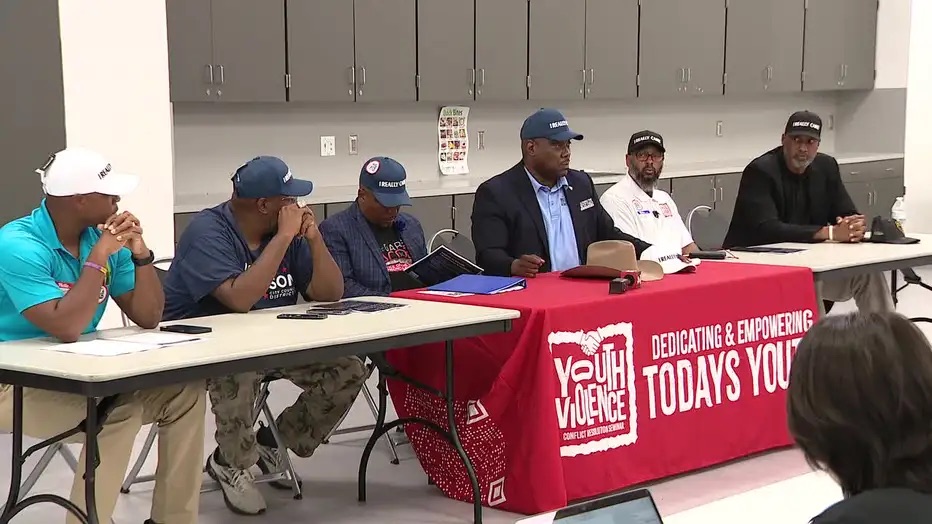
One week after the tragic shooting at Wilmer-Hutchins High School, a coalition of community leaders convened to confront the broader issue of youth violence in Dallas, as students prepare to return to campus on Wednesday.
The recent incident has amplified concerns about escalating gun violence across North Texas. In response, a group of civic advocates gathered to explore meaningful solutions and inspire change—particularly among young people most at risk.
Leading the dialogue was community activist Bruce Carter, who emphasized the importance of addressing what he described as a persistent and deadly crisis impacting Black males between the ages of 12 and 26.
“If you’re a parent of a young Black male in that age range, the current options seem dire: success, incarceration, or death,” Carter said. “You can’t solve this with metal detectors alone. You can’t place resource officers at every door—it’s just not feasible.”
Among the voices at the meeting was Anthony Preston, a private track coach in North Texas who mentors several students at Wilmer-Hutchins. Preston expressed concern that many teens are silently struggling.
“I don’t believe these kids are being honest about what they’re truly feeling,” Preston said. “They say they’re okay when they’re not. It’s a melting pot of violence, and they’re in the middle of it.”
Preston shared the recent story of one of his 16-year-old athletes, who lost a close friend to gun violence.
“His funeral was last Thursday,” said student Charles Hines.
The Ongoing Crisis
Seventeen-year-old Tracy Haynes Jr., the student accused in last week’s shooting, remains in custody. A judge on Monday denied a request to lower his $3.1 million bond. Haynes’ defense argues he was acting out of fear, citing threats from alleged members of the 5k gang toward him and his family.
Authorities also revealed that another student had opened a side door to allow Haynes entry into the school—highlighting serious lapses in security.
This is not the first time Wilmer-Hutchins has faced such an incident. A shooting last year similarly exposed failures in campus safety protocols. In that case, a metal detector was triggered, but the suspect’s bag was never searched.
Looking Ahead
In the aftermath of these repeated tragedies, community leaders are urging elected officials to consider funding non-traditional violence prevention programs—initiatives they believe can connect with young people in ways traditional security measures cannot.
The hope, they say, is to foster a safer environment not just at Wilmer-Hutchins, but throughout Dallas.




